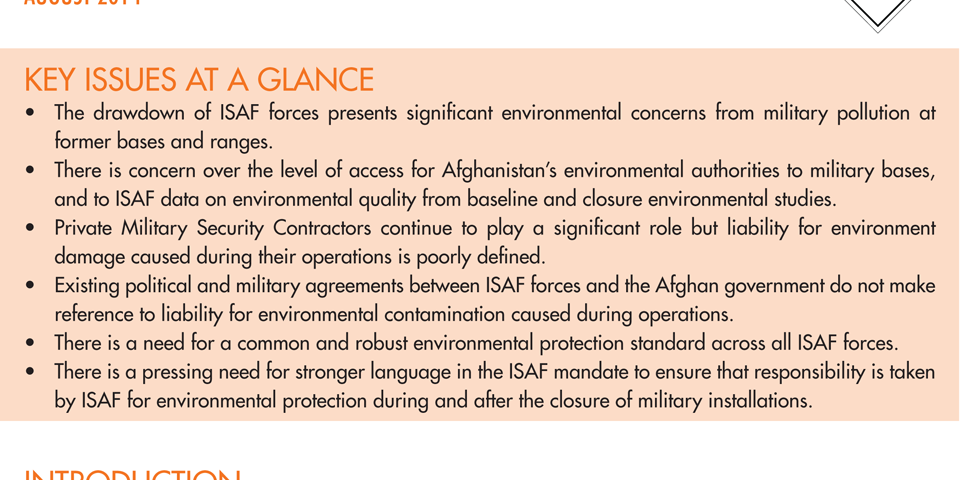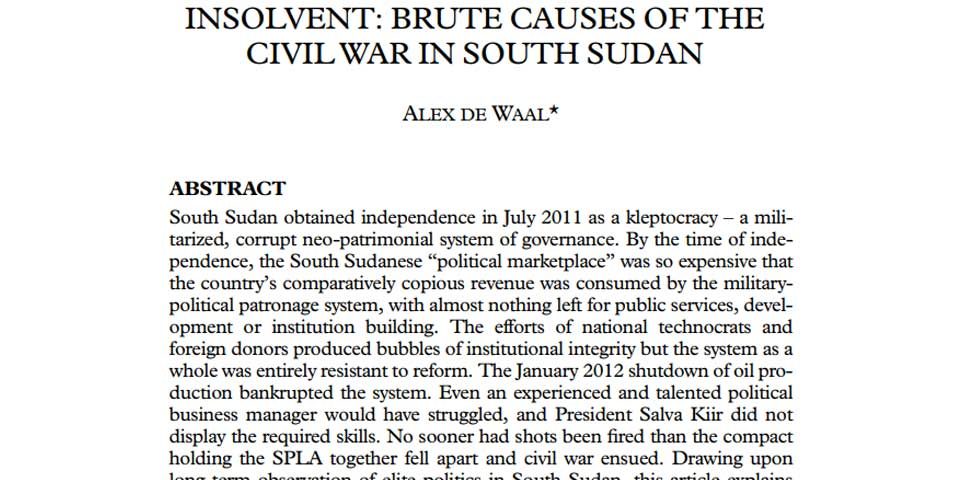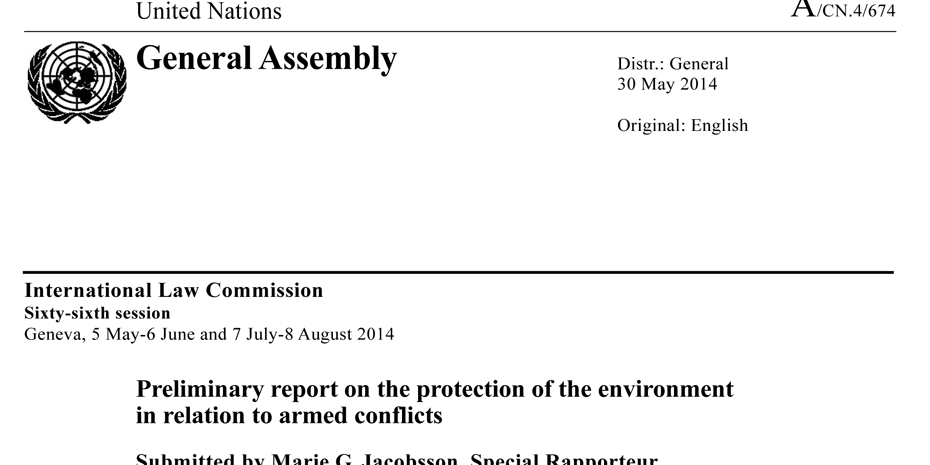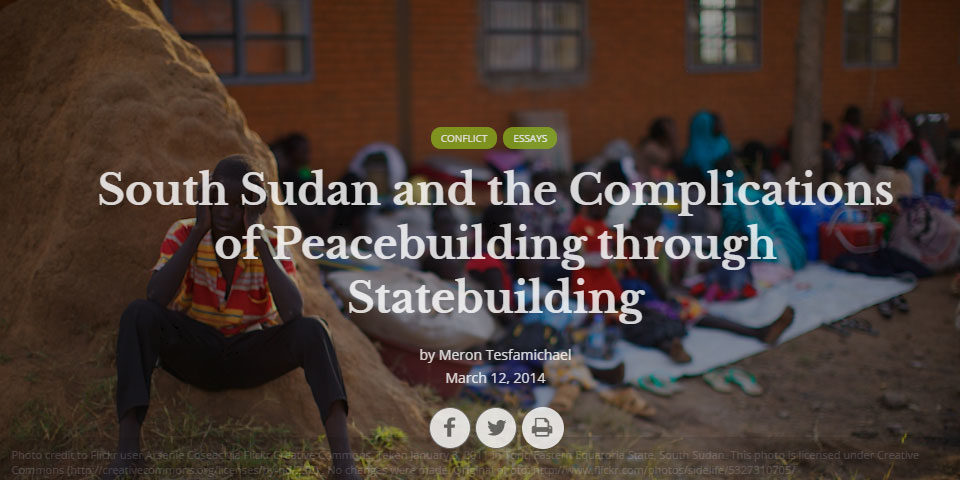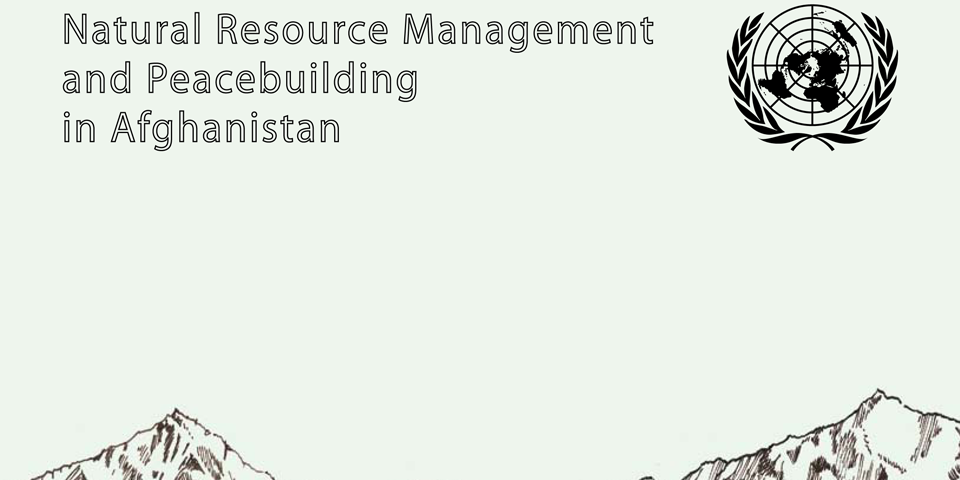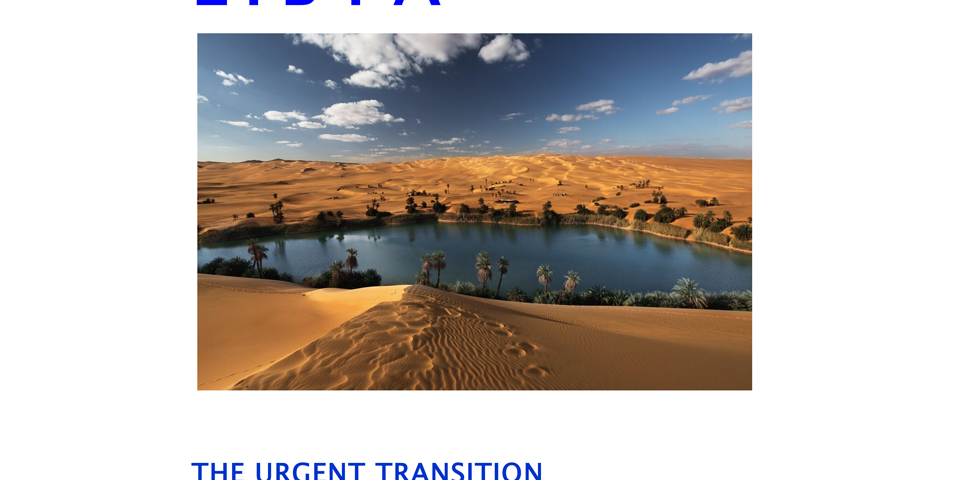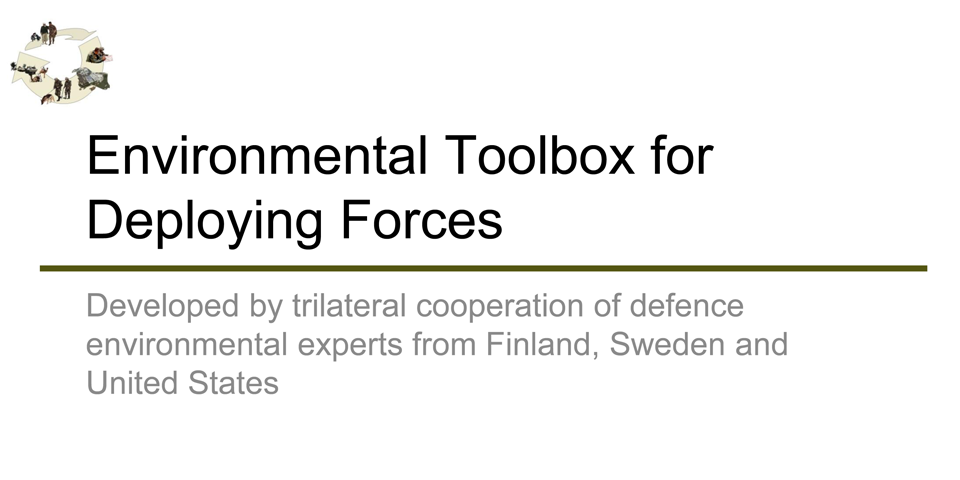TRW Project | Toxic remnants of war and ISAF’s military drawdown
This briefing examined a range of toxic remnants of war that could impact installations in Afghanistan as a result of the drawdown. It also considered current agreements in respect to environmental liability, identifying a policy gap that could unjustly impact Afghan citizens.

